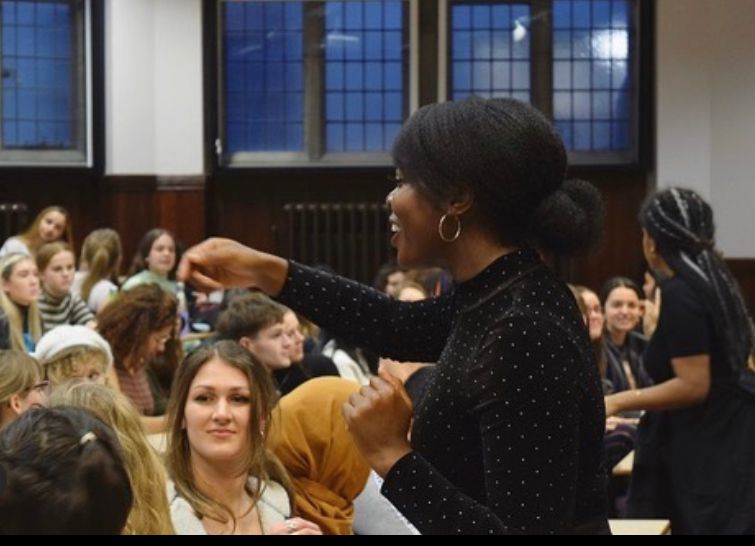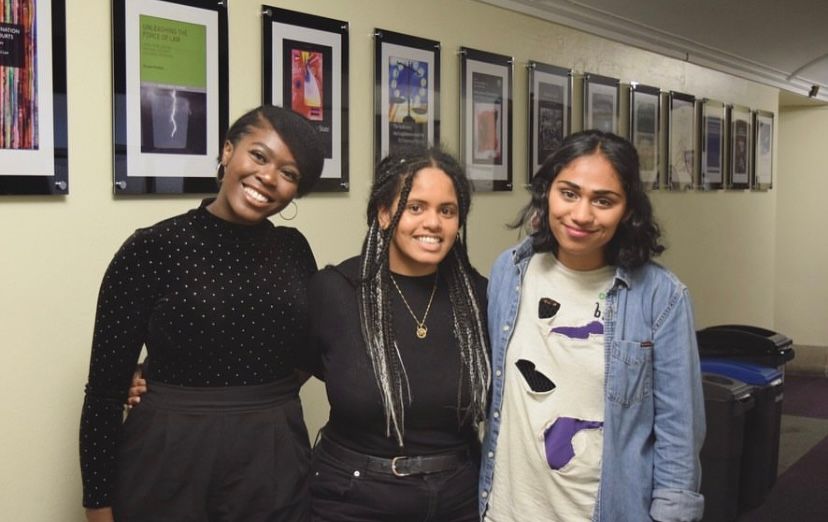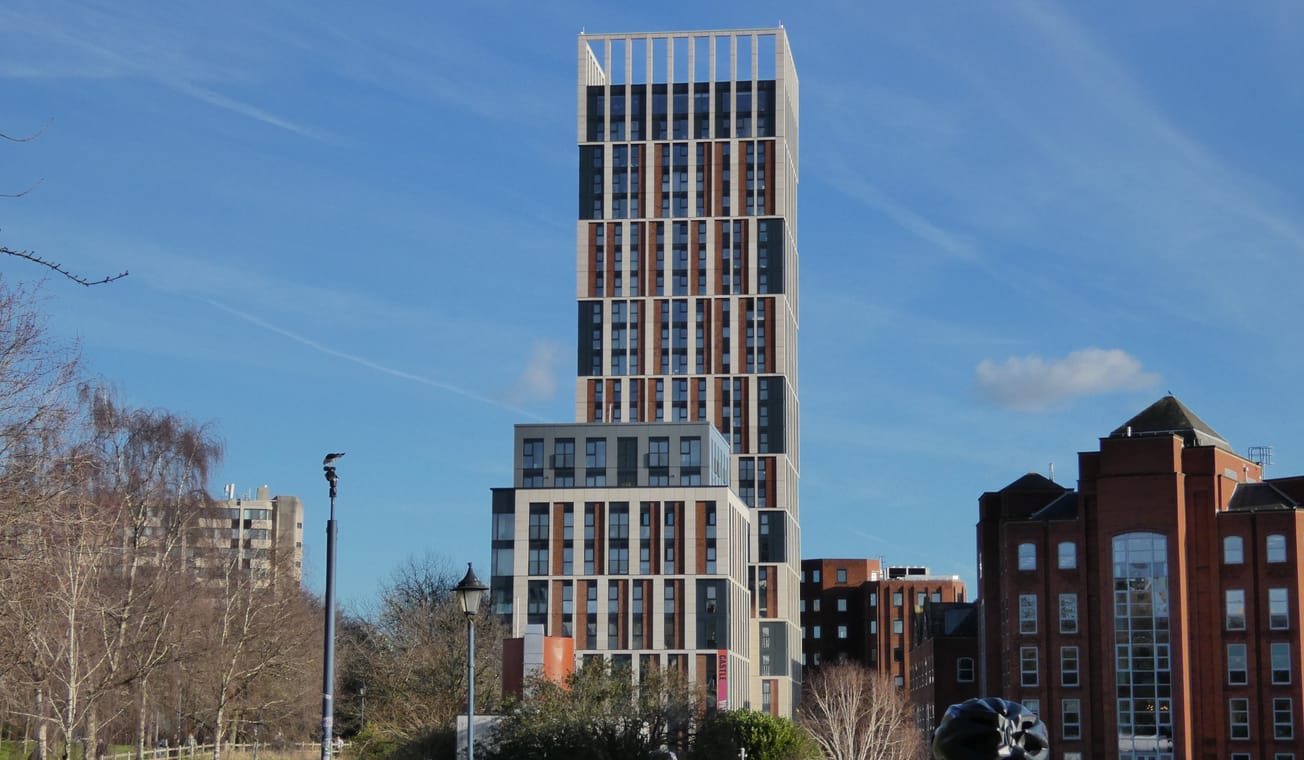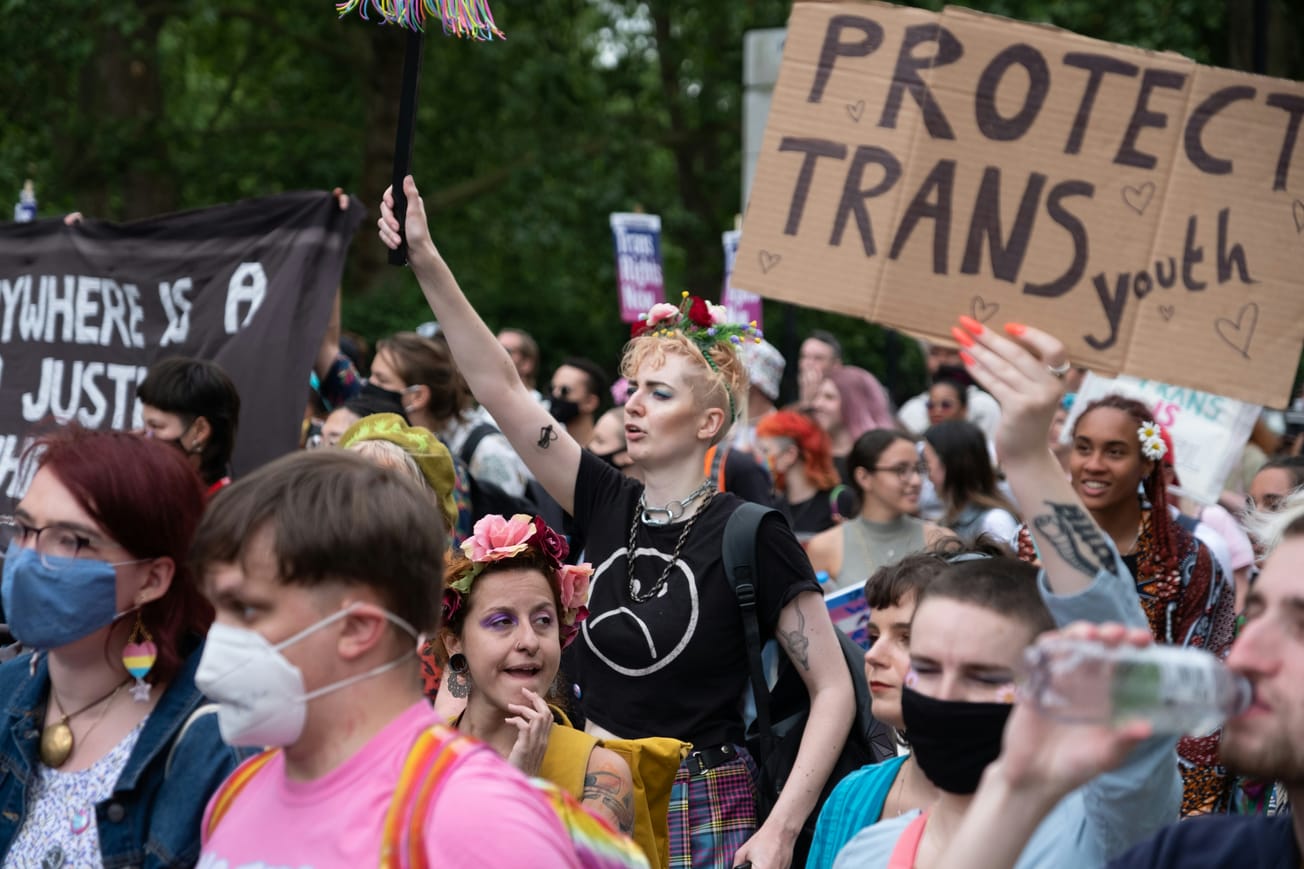By Morayo Omogbenigun, Second Year Social Policy
Morayo Omogbenigun interviews Theresa Awolesi, newly elected Chair of the Black Students Network, to talk about the politics of terms like ‘POC’ and ‘BAME’, the need to foster community amongst Black students, and what she plans to achieve with the network.
Theresa Awolesi was on the BME Network Committee last year. Noticing what she saw as a lack of support for Black students outside the ACS and other Black cultural societies, Theresa decided to create the Black Student Network; a place where she hopes Black students can connect with each other and have a bigger stake in decisions that the University makes, for example how to deal with racism and research the University plans to undertake.
‘BAME’ is a uniquely British term for everyone who doesn’t identify as white, and often fails to recognise the nuances in different ethnicities’ experiences of racism.
BME students are currently more likely to face mental health issues and less likely to achieve 2:1s and 1sts in their degrees. Much more needs to be done by universities across the country.
— Bristol SU BME Network (@BristolSUBME) May 4, 2020
Personally, the past few months have made me divest from the terms BAME and POC – the Black Lives Matter and #EndSARS movements have revealed a lack of interracial solidarity that undermines the unity that the term POC connotes.
Theresa mentioned that some BAME spaces often turn into the ‘Oppression Olympics’, where different minorities debate who is the most oppressed, causing a lack of consensus, which usually results in no progress being made.
Part of the beauty of the Black Student Network is the power that comes with naming ourselves – in Theresa’s words, ‘no one rushes to self-identify as BAME’. Such labels are often placed onto ethnic minorities, marking us as the ‘other’. If we name ourselves, we control the narratives around our own advancement and community-building.
Glad to be organising this event with @folukeifejola on behalf of @BristolSUBME @Bristol_SU
— Khadija Meghrawi (@KMeghrawi) November 2, 2020
Please tune in for a crucial discussion https://t.co/efeceSt4En
Even though the official statistics mention that 27 per cent of students at the University are BAME, Bristol is the fifth from the bottom in social inclusion according to The Times. In recent years, the University has run the 'Bristol Scholars' and 'Access to Bristol' programmes to tackle this issue and increase the social inclusivity on campus.
Theresa tells me that ‘there has to be space in the University for the advancement of Black students and their representation.’ When asked about her hopes for the Black Student Network, she emphasises the need for community. As a Black student, she often feels like other Black students are hiding in the University, and the transfer to Bristol can be bewildering as suddenly you struggle to find people that look like you and relate to your experiences.
If we name ourselves, we control the narratives around our own advancement and community-building.
When speaking about the wider Black community in Bristol, Theresa and I agreed on the disconnect between the two – Bristol has such a large Black Caribbean community, and yet, our Black Caribbean students are unaware of this community.
The same cannot be said for West African students, who often make up the majority of the Black population at the University. As part of her plans for BSN, Theresa plans to make connections between the Black student population, local Black initiatives, and Black academia.
Part of this connection with the Black Bristolian community will be through political organising. However, Theresa first wants to establish the BSN as a hub for Black students within the University. Five or six years from now, she sees the BSN blossoming in other universities, turning into something that Black students coming into the University are excited to join, while Black alumnae are encouraged maintain a strong connection.

The first student group for Black students (the West African Students’ Union) was founded in 1925 in London by Marcus Garvey, meanwhile, societies like the University of Glasgow’s Conservative Association stretch back to 1836.
The lack of connectivity between Black people going through university is one to be concerned about. More than two-thirds of institutions have BAME attainment gaps above ten per cent - with strong alumnae networks comes funding, sponsorships and better connections for Black students.
Your response to the Black Student Network might be, ‘What about the ACS?’. This isn’t something Theresa has failed to consider. We both agreed that the ACS is a social space and is doing what its expected to do, but we need a Network for wider support. Societies can only gain so much funding and will never have as much influence as Networks do in decision-making at the University.
The one million pound fund attempting to guarantee more Black students a place at the University irrespective of their financial situations feels like the the first step on the behalf of the University towards meaningful inclusion. Support means more than just renumeration, it means year-round acknowledgement of Black students.
At the moment, Black History Month is often the only opportunity Black students get to celebrate their heritage. Being closely involved with this year’s BHM Planning Committee myself, I felt a sense of haste – to me it felt as if we had to cram in several events in case there wouldn’t be another opportunity to celebrate Blackness.
Spotlight on Nilaari: The charity offering culturally appropriate counselling services to the Bristol BAME community
Activists, reconcilers, and boycotters: the Seven Saints of St Pauls
Theresa and I spoke about Black joy being a political emotion – to see fellow Black people do well in the face of imposter syndrome and the other hurdles we face is something to celebrate all year round. The act of enjoying your Blackness and being surrounded by it is radical – it’s a challenge to any systems which attempt to suppress, exploit and profit from it.
Theresa explains to me that after jumping through several administrative hoops, she is in the final stages of establishing the Black Student Network. If anyone would like to get involved, please email the Black Student Network (blackstudentsnetwork@gmail.com).
Featured: Epigram / Thereda Awolesi
What do you want to see from the Black Students Network this year?









